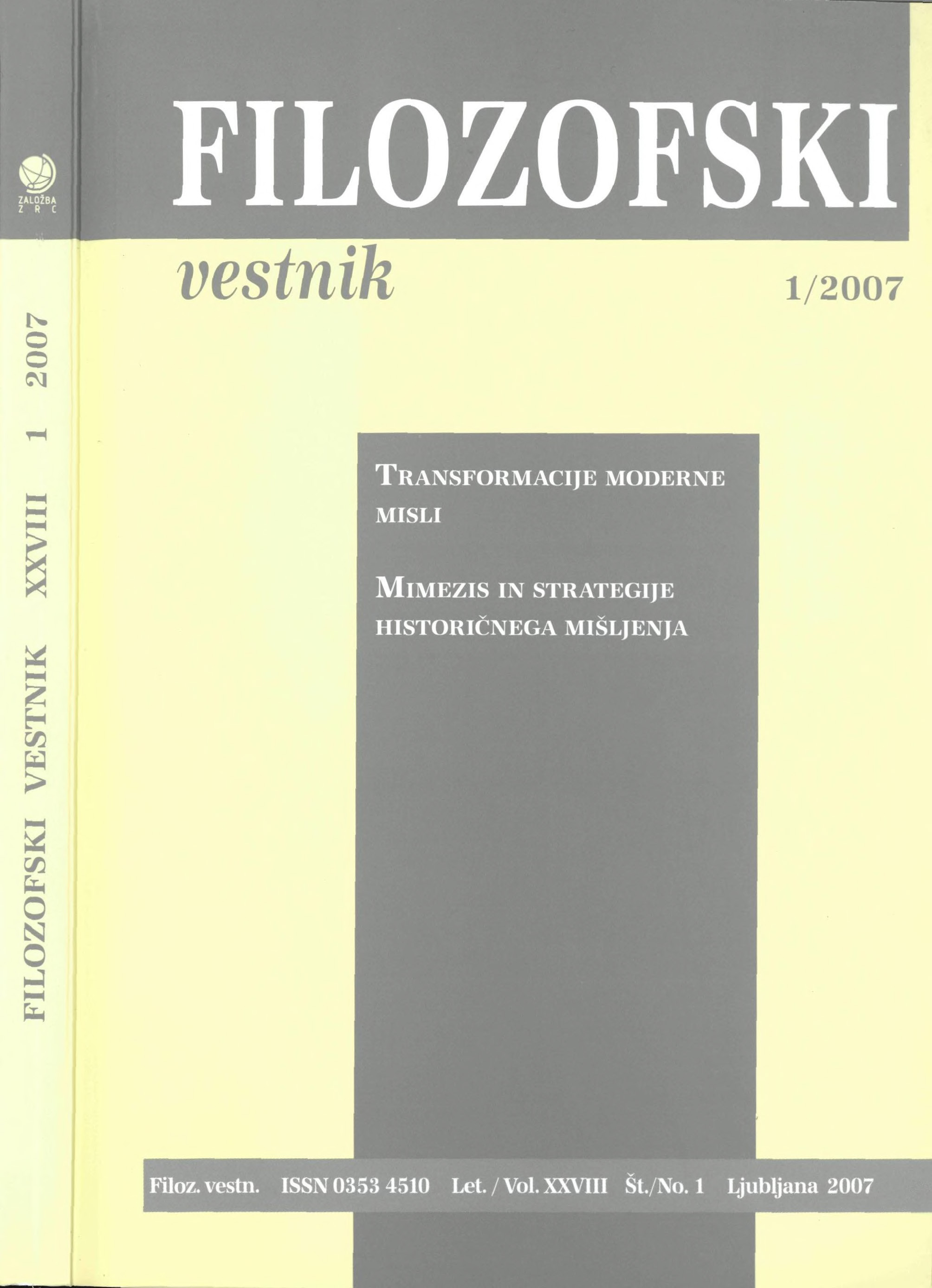Pariška obsodba leta 1277, potentia dei absoluta in rojstvo moderne znanosti
Ključne besede:
obsodba leta 1277, potentia dei absoluta, mnoštvo svetov, Galileo Galilej, rojstvo moderna znanostiPovzetek
V zgodovinopisju srednjeveške in zgodnje moderne znanosti je še vedno prisotna teza, ki jo je izvorno formuliral P. Duhem, danes pa jo v nekoliko bolj zmerni obliki zagovarja E. Grant, po kateri pomeni pariška obsodba 219 propozicij iz leta 1277 afirmacijo potentia dei absoluta, ki je rezultirala v kritiki aristotelizma in posledično v rojstvu moderne znanosti. Avtor dokazuje, da noben od teh enačajev ne zdrži kritičnega pretresa. Razprava o »dialektiki božjih moči« (potentia dei absoluta – potentia dei ordinata) se je začela že dobrega pol stoletja pred obsodbo, ki tudi ne predstavlja odločilnega dejavnika pri promociji te distinkcije. S primerjavo razprave o mnoštvu svetov pred obsodbo in po njej je mogoče pokazati, da je bil Aristotelovo pojmovanje edinosti našega sveta v teološki perspektivi (kaj bi bog lahko storil) pod vprašaj postavljeno že pred obsodbo, da pa tako pred obsodbo kot po njej nihče ni verjel, da dejansko obstaja več kot en svet. »Kritika« Aristotela je tako vseskozi epistemološko omejena na mišljenje par esbatement ali secundum imaginationem: kaj bi Bog s svojo potentia dei absoluta lahko storil. Na podlagi Galilejeve refleksije epistemološkega statusa koncepta potentia dei absoluta je mogoče pokazati razliko med srednjeveško in moderno, galilejsko znanostjo. Po Galileju naloga znanosti ni raziskovati, kaj bi Bog lahko storil, temveč tisto, kar je dejansko napravil.Prenosi
Podatki o prenosih še niso na voljo.
Prenosi
Objavljeno
2016-03-05
Kako citirati
Vesel, M. (2016). Pariška obsodba leta 1277, potentia dei absoluta in rojstvo moderne znanosti. Filozofski Vestnik, 28(1). Pridobljeno od https://ojs.zrc-sazu.si/filozofski-vestnik/article/view/4385
Številka
Rubrike
Transformacije moderne misli
Licenca
Avtorji jamčijo, da je delo njihova avtorska stvaritev, da v njem niso kršene avtorske pravice tretjih oseb ali kake druge pravice. V primeru zahtevkov tretjih oseb se avtorji zavezujejo, da bodo varovali interese založnika ter da bodo povrnili morebitno škodo.
Podrobneje v rubriki: Prispevki





